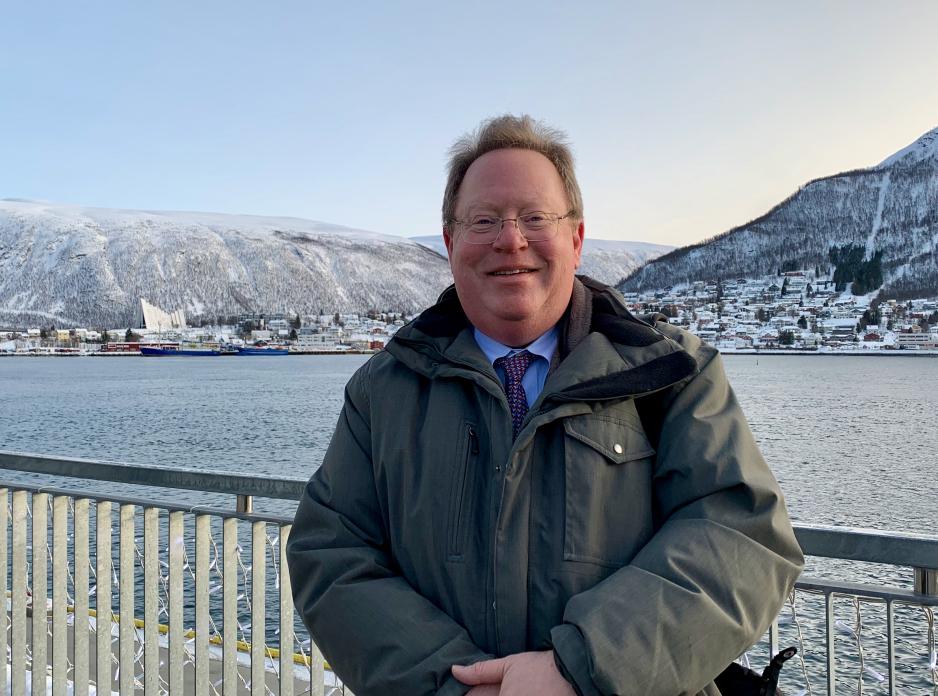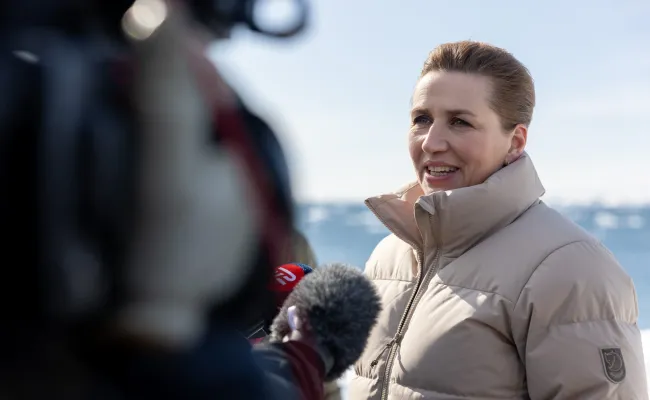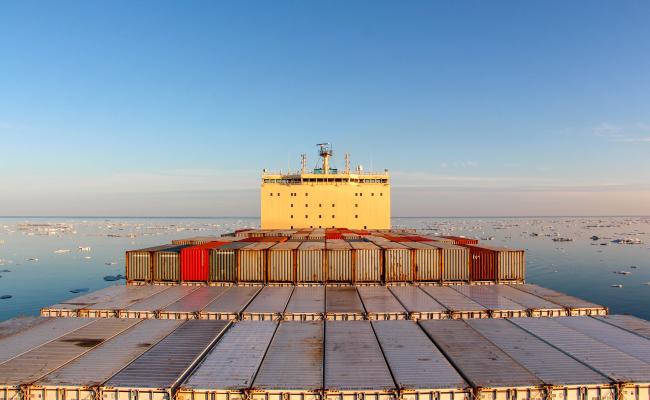Op-ed: US Policies in the Arctic Are Changing but the Extent Remains to Be Seen

Evan Bloom is the Senior Advisor, Centre for the Ocean and the Arctic, UiT – The Arctic University of Norway, and a former U.S. diplomat.
The Arctic States will need to have some patience as various American policies become clearer. And in the meantime, they can task their diplomats with expressing to the U.S. their thoughts on some of these topics in the hope of influencing the formulation of U.S. positions, writes Evan Bloom at UiT in this op-ed.
This is an opinion piece written by external contributors. All views expressed are the writer's own.
So many of my European friends have expressed bewilderment with the political changes going on in the United States.
Here in the U.S. as well, it is hard to keep track of the considerable number of developments and departures from long-term norms, well beyond what we saw the first time around with the prior administration of President Trump.
As we consider the ramifications for the Arctic, it is necessary to keep in mind that some fundamental and long-term changes have indeed occurred, but also that the details are still coming into focus.
Since President Trump’s inauguration in January, the most obvious change in policy relating to the Arctic involves Trump’s repeated demand for U.S. control of Greenland.
As with so many of the President’s statements, it is hard to know whether this reflects a serious intention for future action or an opening gambit to gain some advantage in, for example, rights to mineral resources.
Also read (the text continues)
The disregard for the interests of American ally Denmark or the concerns of the Greenlanders demonstrates a strong deviation from usual American values, diplomacy and alliance politics.
Stepping away from support for Ukraine
Another change in policy that has implications not only for the Arctic but well beyond is Trump reaching out to Vladimir Putin, removing Russia from the isolation it has experienced since its further invasion of Ukraine in 2022.
Stepping away from support for Ukraine (although this seems to switch back and forth depending on the day), showing a certain warmth to Putin, and yet treating harshly allies like Canada (not to mention threatening numerous countries with tariffs), has caused U.S. allies to wonder if they and the U.S. share fundamental assumptions about their security interests.
Of course, as Russia comprises half the Arctic, any evolution in the relationship with Moscow has an impact on relations in that region.
Some U.S. policies that will touch on the Arctic are completely clear at this point. For example, in the Arctic as elsewhere the U.S. will reject climate change mitigation policies aimed at limiting greenhouse gas emissions and will support fossil fuel extraction and use.
How will the U.S. work with the Kingdom of Denmark as incoming Council chair, and will this be affected by tensions over Greenland?
Yet, many details about this Administration’s approaches in the High North have yet to be defined.
In part, this is because the new set of political appointments in key agencies, like the Department of State, have not yet been made, and those officials will play a key role in determining how the U.S. will act in international bodies like the Arctic Council, as well as define U.S. interests in policies related to the Arctic Ocean – such as shipping regulation, pollution or fishing.
The Arctic Council
After the crisis in Ukraine ramped up, the work of the Arctic Council, the region’s main diplomatic forum, was at first put on hold, then later partially resumed but with cooperation with the Russian Federation quite limited.
Indeed, with Finland and Sweden joining NATO, now all seven members of the Council other than Russia are NATO members – creating an inherent tension in the organization.
The U.S. joined other members in isolating Russia, but with an apparent thaw in U.S.-Russian relations at the leaders’ level, will the U.S. seek to welcome Russian full participation in the Council?
Also read (the text continues)
And if the U.S. does this, will Canada and the other European members go along? How will the U.S. work with the Kingdom of Denmark as incoming Council chair, and will this be affected by tensions over Greenland?
In 2019, under the last Trump Administration, the U.S. vetoed the Council’s ministerial declaration at Rovaniemi, primarily due to references it contained related to climate change.
However, the U.S. did not go further and prevent work within the Council’s technical working groups related to climate. Today, the Administration will face a similar choice.
With other countries (Russia aside) wanting the Council to continue to focus on its traditional core efforts to promote science-based research and policies related to environment and climate change, will the U.S. allow that work to continue?
Or this time, would it block those efforts that are likely to be sought by the Nordics and Canada?
Will the Trump Administration accommodate Indigenous interests?
In Arctic matters, in particular within the State of Alaska, outreach to and inclusion of views of Indigenous Peoples play an important role in policy development and implementation.
Will the Trump Administration accommodate Indigenous interests, or will these somehow be deemed akin to promoting social equity and inclusion policies that the Administration opposes in other contexts?
The current Administration will no doubt be unwilling to support climate research in the Arctic, but that isn’t quite the same as denying that the climate is changing and requires local adaptation.
Perhaps the Administration as it develops its policies will acknowledge the reality of permafrost melt and its impact on infrastructure.
Even if the release of carbon emissions isn’t a focus of its concern, the federal government may acknowledge the need to address collapsing roads and buildings in Alaska.
Thus, Arctic States will need to have some patience as various American policies becoming clearer. And in the meantime, they can task their diplomats with expressing to the U.S. their thoughts on some of these topics in the hope of influencing the formulation of U.S. positions.



